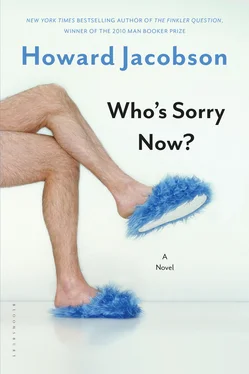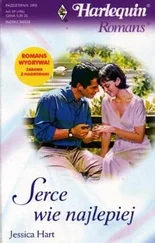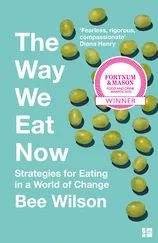In Kreitman’s dream the person lying on the breast was him. The person weeping was him too. He was trying to say the words, ‘It’s a mistake,’ but his weeping wouldn’t let him. The arms around his neck were very soft. Not clinging, protective rather. Arms of understanding. Except that he was sure she didn’t understand or, if you like, that she misunderstood, that she mistook him, which was why it was a matter of such great urgency to him to say the words, ‘It’s a mistake.’ ‘Hush,’ she said. ‘It’s all right. Hush.’ Then he realised the weeping he had been listening to was not his but hers. That was the mistake. The cause of this great convulsion of sadness was her not him. And then her weeping grew so inconsolable he knew his heart would break if he didn’t force himself to wake.
So who was she? Kreitman didn’t know. Or if he knew, he wasn’t letting on. This is the sense in which the dream concerned only him: it was a dream of grief but the only party to the grief he recognised was himself, Marvin Kreitman. Was the weeping woman in whose arms he nearly died simply every woman he had ever slept with? Was she the continuum that stretched the whole way back to his mother, the first cause of all love and discontentment in him? She wasn’t Chas, he was sure of that. She wasn’t either of his daughters. She wasn’t Erica or Bernadette or Shelley or Vanessa. Nor was she Hazel, though it took him a little longer to rule her out. No, she wasn’t Hazel. She wasn’t. Hazel didn’t weep like that. But she coincided with a sudden burst of longing for his wife, an ache for her physical presence, which he thought would shatter the insides of his brain.
‘He’s missing her,’ Chas phoned her sister to say.
‘Missing the tub of lard? You’re joking. He never took the slightest interest in her. Are you sure it’s not me he’s missing? Are you sure he’s not missing a broken toenail?’
‘No, he’s missing her. I can hear it.’
‘Oh, darling, you aren’t still listening to his body? This is Marvin Kreitman we’re talking about. His body is certain to be lying. If it says he’s missing her I shouldn’t worry — it means he isn’t.’
‘I appreciate your words of comfort, Dolly, but I know what I’m talking about. I am beginning to understand him. He’s all about loss. I don’t mean the usual sexual thing about only wanting what you can’t have. To my surprise, he isn’t like that. He isn’t losing interest in me because I’m available. Quite the opposite. On that score I have no complaints to make …’
‘Don’t boast, darling.’
‘I am allowed to boast, Dolly. I only wish I could boast that he thinks only of me. But he doesn’t. He’ll think only of me when he’s on to the next one. First he has to lose me, then he’ll love me.’
‘Well, for your sake I hope that isn’t soon,’ Dotty said.
‘Hope it isn’t soon he loves me?’
‘Hope it isn’t soon he loses you.’
‘Same thing,’ Chas told her.
‘Well, you know what I think,’ Hazel’s mother told her.
‘Mother, if the Palestinians haven’t shot him or he isn’t in prison for selling secrets to the Iranians he’ll be wearing ringlets down to his knees.’
‘Hazel, you are always at least twenty-five years and a dozen sentences behind me,’ Hetta Nossiter said, adjusting the dimmer slightly on the lamp beside her.
Although her mother had all her faculties about her, Hazel noted she had been growing tetchy recently with the light. Either there was too little of it coming in from Great Russell Street, dying in the courtyard and finally smothered by the classical façade of the British Museum, or there was too much coming through the worn parchment lampshades. Was this what became of you when you lived alone? Was nothing ever exactly the way you wanted it?
‘Are your eyes all right, Mother?’ Hazel asked.
‘Ha! You should have eyesight as good as mine. Between the two of us, my dear, there is only one set of eyes, and they belong to me.’
‘ It belongs to you.’
‘Don’t cheek your mother. My grammar was never any disappointment to Cabinet ministers. It’s you who’s the disappointment, not me.’
Hazel shrank from these words as though they were missiles. ‘Mother!’ she cried.
‘Well, I’m sorry, but I have to be cruel to be kind with you. You’re so prickly. How many times have I had to tell you — you don’t keep a man by making his life a hair shirt. When you find a man, Hazel, you feather-bed him.’
‘The way you encouraged me to feather-bed Marvin?’
Hetta Nossiter turned up the dimmer on her lamp. ‘Ach, Marvin.’
My own fault, Hazel thought, looking out at the touristic dismalness of Bloomsbury, busier than when she’d grown up in it, but more aimless, no longer a place for people on some errand of the mind — my own fault for coming here.
Her mother had met Charlie Merriweather once, quite recently, in this very room, and liked him. Hazel had brought him on a hunch — correctly guessing that Charlie would be amused by her mother on account of her faded fifties associations (Charlie loved faded), and that she would be taken by him partly because his own deportment had something of the fifties about it, partly because he was tall, but mainly because he wasn’t Marvin. ‘An agreeable change to see you with someone whose father didn’t sell purses on a market,’ she whispered to Hazel, while Charlie was looking round the little flat. ‘A nice build on him too. He’d look good in uniform. Is he too young to have done national service?’
‘Wonderful woman,’ Charlie had said after meeting her. ‘I love the smell of gin around women of that era.’
This was news to Hazel. ‘Does my mother smell of gin?’
‘Not so much her as the apartment block,’ Charlie said quickly. ‘A lot of secret tippling goes on in Bloomsbury. Always has. It’s either that or they blow their brains out. It’s my favourite stratum of English society, what’s left of it, ex-civil servants and fallen gentry, antiquarians and owners of military bookshops, all coming apart at the seams but still managing to keep going on boiled cabbage and iced gin and bleary recollections of buggery …’
‘Buggery, Charlie? My mother!’
‘The men, Hazel. The men.’
‘And the women?’
He thought about it. What recollections were the women living on? All the women Charlie knew were living on recollections of being in love with V. S. Pritchett and Geoffrey Grigson. Broken hearts of another age. Was that the universal fate of women? Was it caused by men like him? ‘I like your mother very much,’ was all he’d say. ‘She’s a dear.’
So it seemed to Hazel that with so much instantaneous affection between them they amounted to a sort of alliance or network — could she actually mean a bulwark? — which she could count on in her heart. No reason, now he liked her mother, not to take Charlie round to meet her again. And no reason, now her mother liked Charlie, not to tell her that she sometimes feared her life with Charlie was built on sand.
‘But I don’t think,’ she said, ‘that I could make things any more comfortable for him than I already do.’
‘Do you cook exotically for him? Do you serve him sweetbreads? Men love entrails, you know.’
‘I cook as exotically as is consistent with the tastes of a man who puts tomato ketchup on his kedgeree and whose idea of a treat is a fruit scone.’
‘Do you remember to put cream on his scone?’
‘Double cream. And jam.’
‘Marmalade’s better.’
‘Charlie’s a jam man.’
‘What about your clothes?’ Without appearing to, she surveyed her daughter, not disapprovingly. She was less tailored than she had been. A good sign. ‘Are your clothes feminine enough for him?’
Читать дальше












